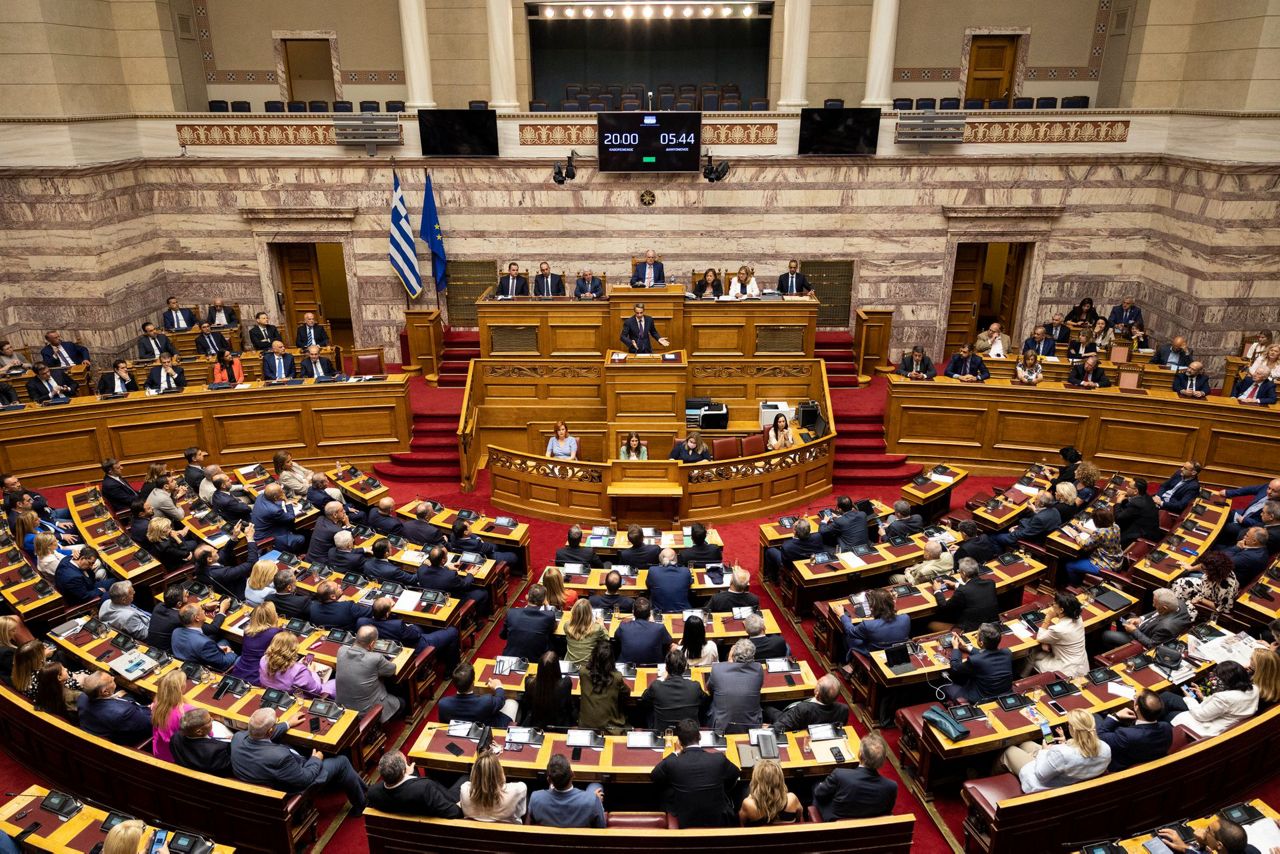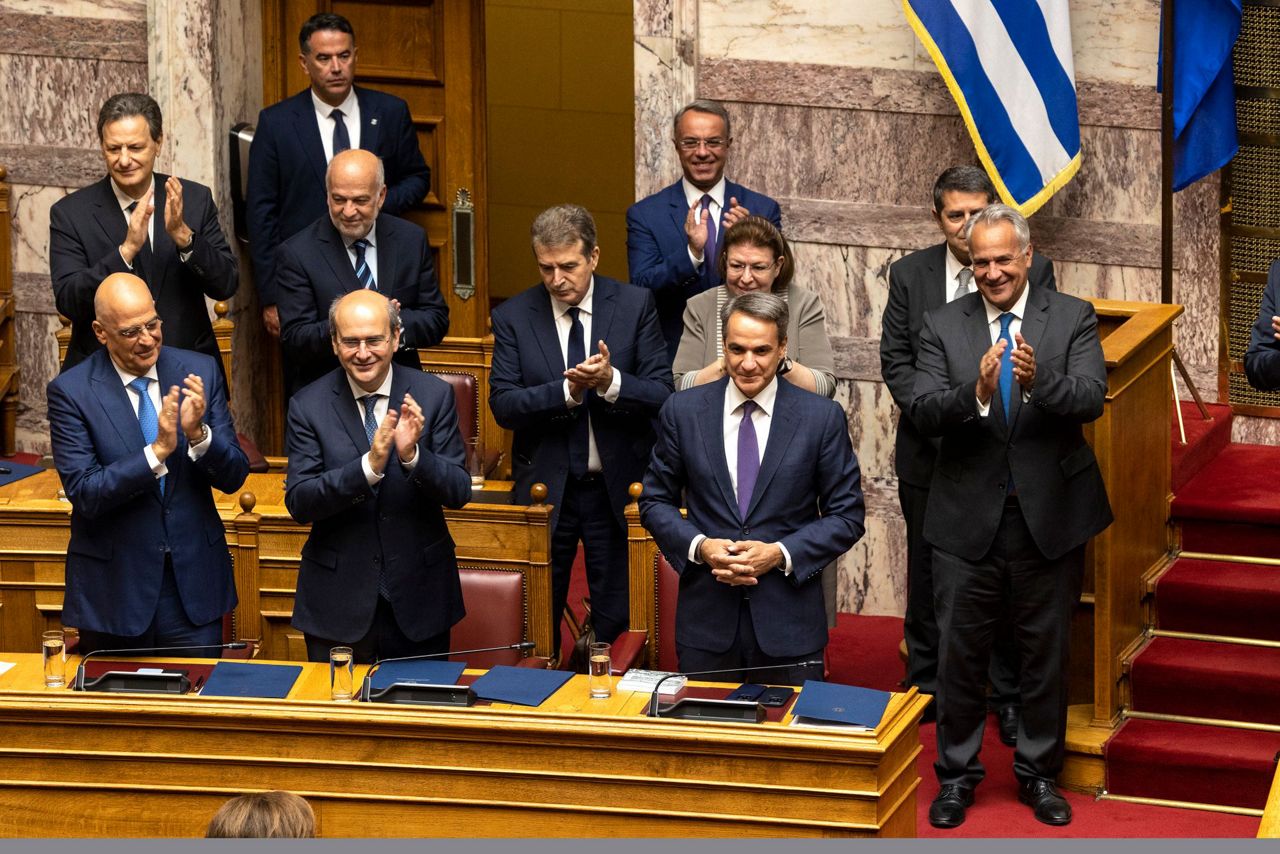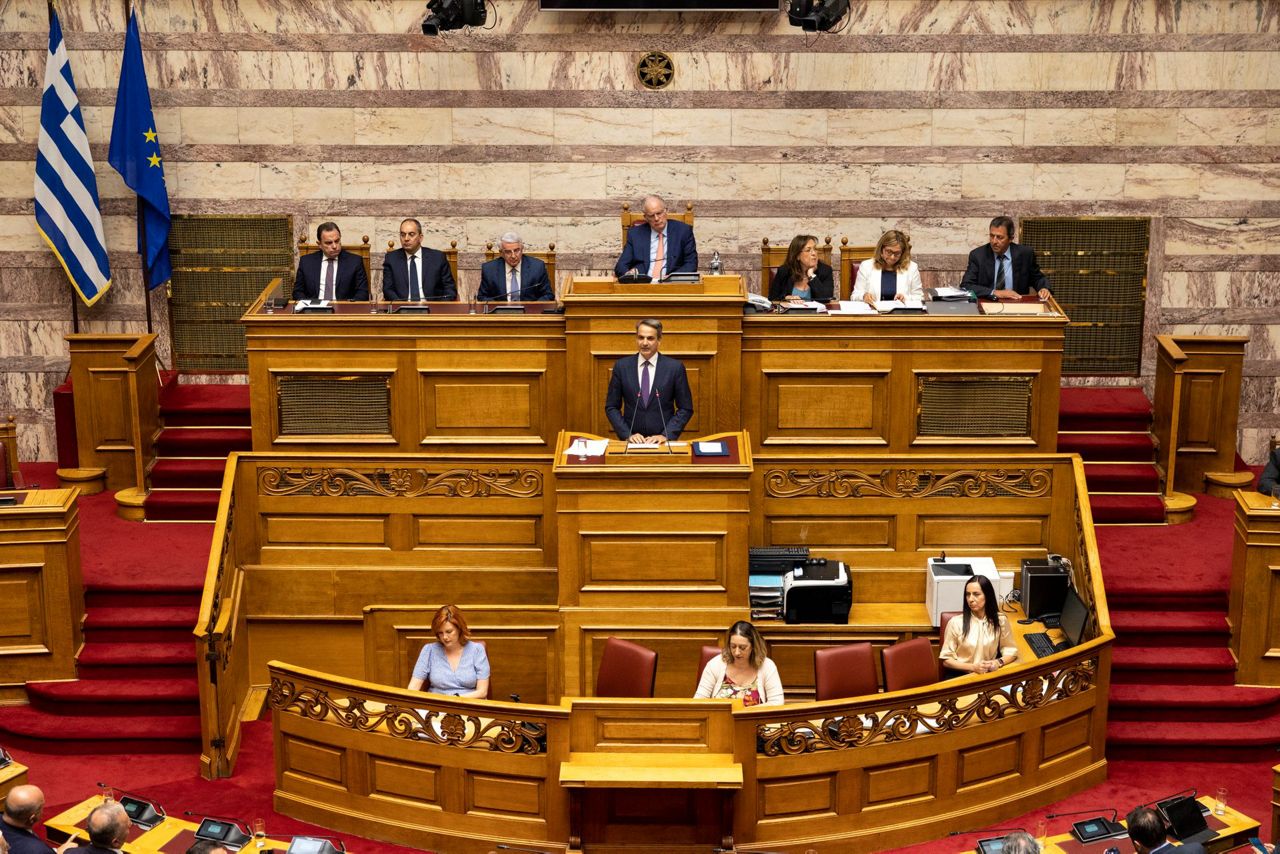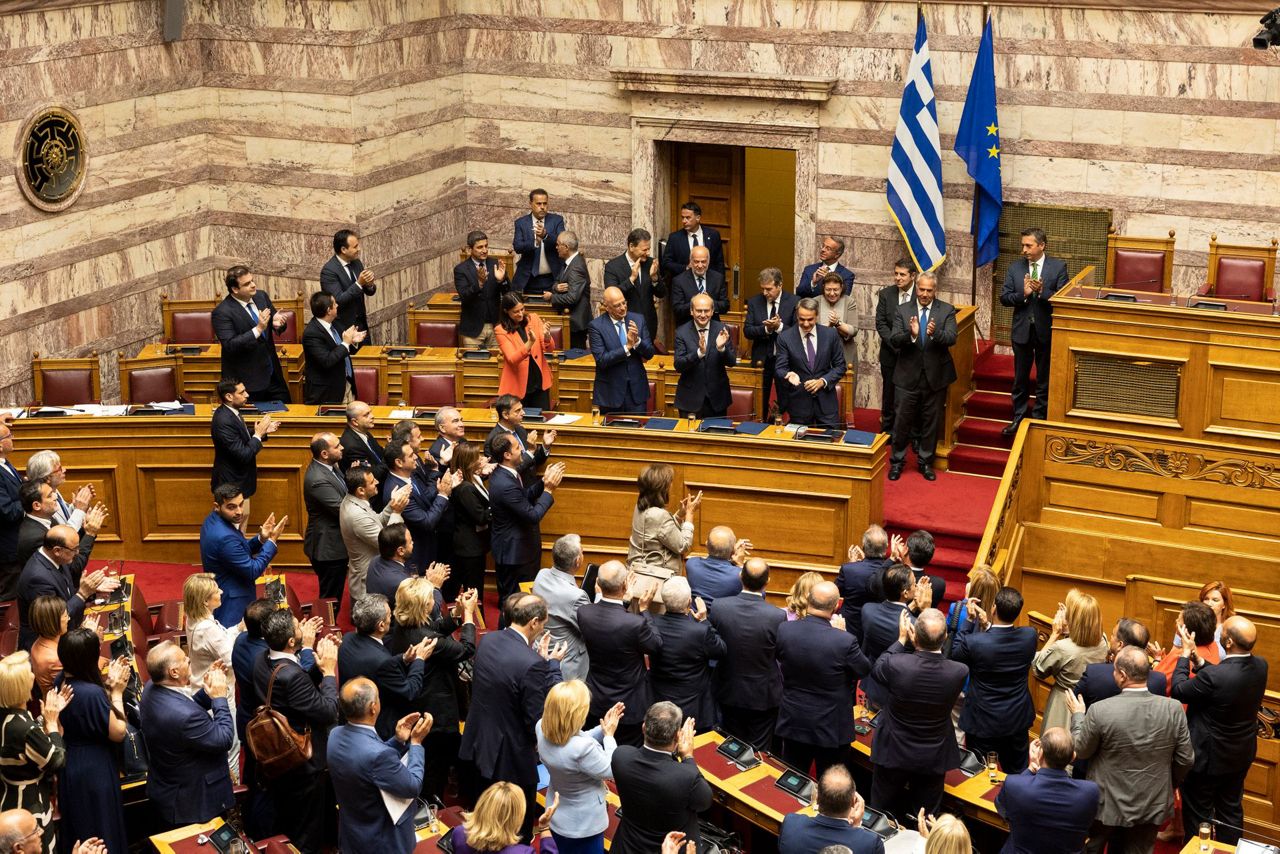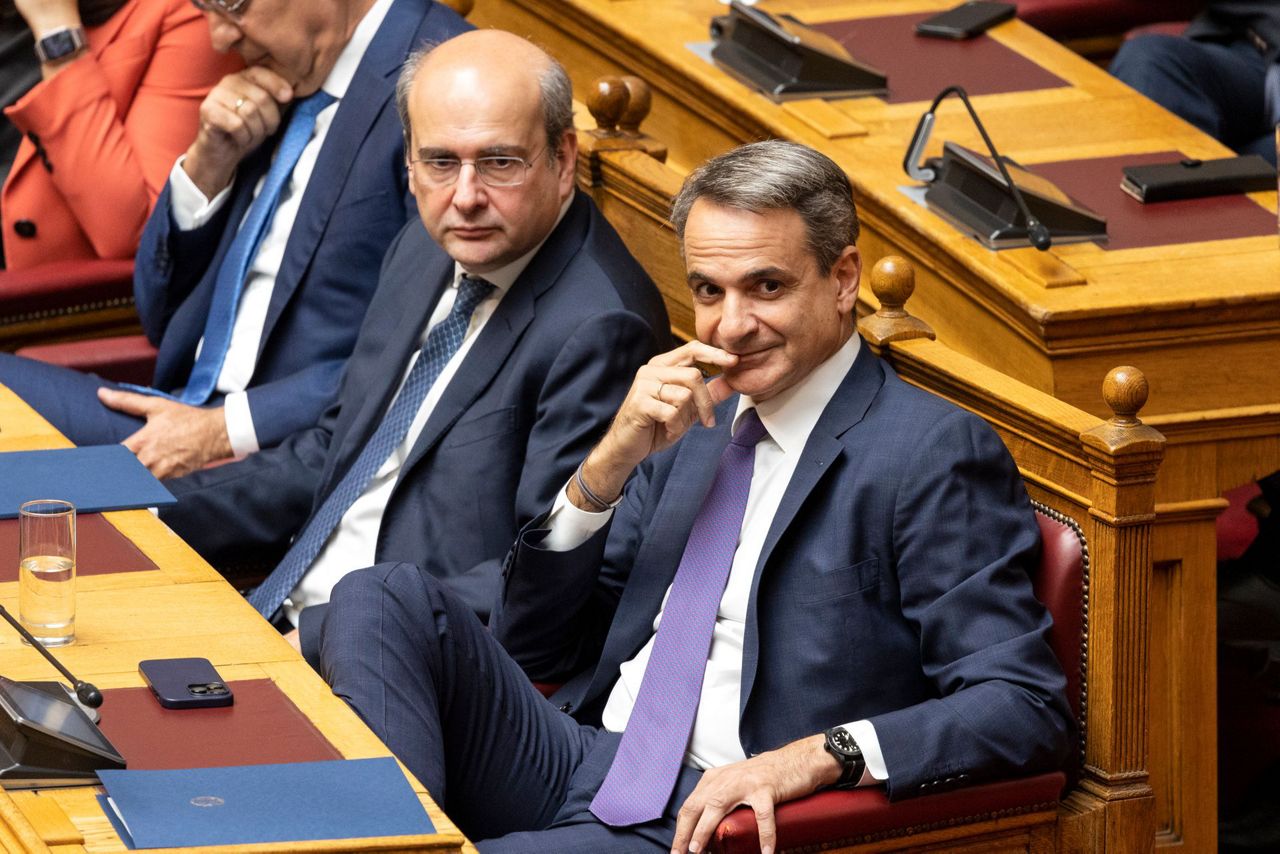ATHENS, Greece (AP) — Greece’s conservative government won a vote of confidence Saturday in Parliament to start its second four-year term, two weeks after Prime Minister Kyriakos Mitsotakis' New Democracy party handily won the election.
The 300 lawmakers voted 158-142 to approve the government’s policy statement after a low-key three-day debate. The vote went as expected, with only lawmakers from New Democracy voting for the government.
Mitsotakis’ New Democracy won the June 25 election with 40.56% of the vote, compared to 17.83% for the left-wing Syriza and 11.84% for the socialist PASOK.
There are eight parties represented in Parliament, up from six in the 2019-23 legislature and five in the short-lived parliament elected on May 21. That election gave no party an overall majority despite the results being broadly similar. The June 25 election was contested under a different electoral law, which gave bonus seats to the winner.
Three of the parties in Parliament are to the right of New Democracy. It was feared that this would make for an unruly legislature, with frequent confrontations. But the debate did not bear out those fears. Mitsotakis himself noted, and welcomed, the lack of verbal pyrotechnics.
The strong presence of the far right may have reduced the size of Mitsotakis’ parliamentary majority, but it has also given him the chance to claim to represent a wide swath of voters, from mainstream conservatives to those on the center-left who do not want to see Syriza back in power. Exit polls showed New Democracy dominated among voters self-identifying as centrists, much as it did in 2019.
The Greek premier’s two speeches, the one with which he started the debate on Thursday and the one with which he concluded it on Saturday evening, had something for each of those seemingly disparate audiences. He presented himself as strong on security, touting a massive arms procurement program, including a future acquisition of U.S.-made F-35 multirole combat aircraft. He also highlighted his tough policy on migration.
But Mitsotakis also positioned himself at the forefront of tackling the adverse effects of climate change, committed to continuing subsidies to vulnerable segments of the population while pursuing market-friendly policies. He said he would bring legislation to legalize same-sex marriage. Above all, he promised to modernize the often ineffective Greek state, especially the national health and justice systems. It wasn't a coincidence that he appointed as health and justice ministers two veteran politicians, both former socialists, who earned a reputation as effective modernizers in the early 2000s.
Opposition speakers accused the conservative government of various shortcomings. Socialist leader Nikos Androulakis claimed it made use of information gleaned from the wiretapping of politicians’ phones, including his, during the campaign, while stifling an investigation into the affair.
The wiretapping, a deadly train crash and the recent capsizing of a ship carrying several hundred migrants failed to influence voters’ decision. In the end, it was the state of the economy, perceived progress and a desire not to see Syriza regain power that determined the election result.
Copyright 2023 The Associated Press. All rights reserved. This material may not be published, broadcast, rewritten or redistributed without permission.



